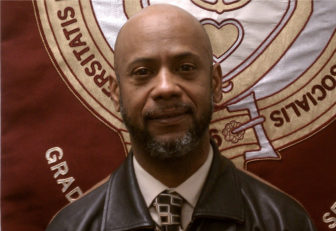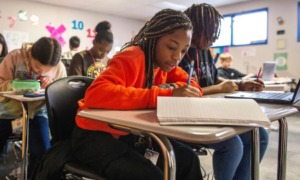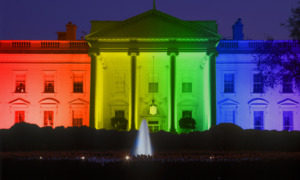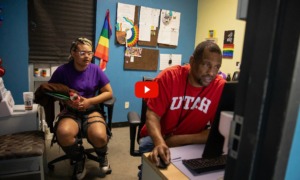
Edgar Tyson
Many fans of hip-hop have commented on Joyner Lucas’ remix of Lil Pump’s hit record, “Gucci Gang.” There is also a considerable online buzz and reaction to Lucas’ video and rap song “I’m Not a Racist.”
The Facebook version of “I’m Not a Racist” has more than 34 million views and the YouTube version had nearly 10 million views in the first week or so. This is not counting the scores of pirated or “copied” versions of this video. In total, it is logical to assume that Lucas’ rap song had as many as 50 million views in its first week. For a message rap song and not what I call a “pop rap” song, this level of interest was remarkable.
Unfortunately, I am not sure how many of these people got the actual messages and point of these two masterpieces. The first song essentially is a play on words of the Lil Pump hit single for the purpose of bringing a different flavor to mainstream hip-hop. Lucas spits some hard, message-oriented verses over the instrumental to Lil Pump’s song with the stated goal of giving youth an alternative narrative to rap’s seemingly favorite topic these days, drugs. “I’m Not A Racist” is a classic “inclusion and diversity” song geared toward advancing human rights and social justice issues.
While these interpretations are clearly my own subjective assessments, I think I have earned some credibility and expertise in making such assessments. I have been conducting and publishing scholarly research (as well as research used in applied practice) on the use of hip-hop music in youth interventions for the past 22 years. I am one of the most cited authors in this area of research.
I am writing this column to solicit feedback from youth between the ages of 12-25 and young adults between 26 and 35. I am extremely curious as to what young people think about these two songs. I wonder if they would agree with my above assessments. I am equally curious as to whether or not they think the songs I assess above are “dope” (for you uninformed adults, that means really good) or not so dope.
To get a sense of what young folks think about “I’m Not A Racist,” I went to my captive youth audience, my children (ages 16, 17, 23, 24 and 29 years). All three of my girls, who are the older three, loved the song and went on to view many other Lucas videos online. My two boys were a bit more skeptical, but nonetheless endorsed the video’s cleverness and cinematography and the song’s lyricism.
Although my boys were less embracing of the strong political message, they said they understood that Joyner’s message was mainly about solutions. All three daughters had a similar assessment of the overall point of this video and song. It is important to note here that this is exactly what Joyner himself stated (i.e., the song was about finding solutions to this horrible, historical cancer called “racism”) in his Breakfast Club interview.
Some seem to think Lucas’ remix of Gucci Gang is a Lil Pump diss record. Lucas says this was not a diss. Given the current political, social and economic reality, it is an ideal example of the current cultural trends in our society, toward inclusion and away from drugs. Lucas’ main issue is with rappers who “glorify” drugs and make it more difficult to do his work, which is partly to influence young people to stay away from drugs. This is why he is one of my most favorite artists right now.
Finally, the main focus of Lucas’ song on racism is embodied at the end of each of the two people’s verses in the video: “… There are two sides to every story. I wish that I knew yours.” The #MeToo movement is all about sharing your voice because when you do, you become empowered. In this current environment, where women are making critical strides in terms of rooting out sexist and predatory privileged males from key positions of power, we can only hope that women be placed in these empty positions throughout many different industries so that true empowerment can be realized.
We need women in positions of power in hip-hop as well. I can only hope that this trend toward inclusion, as evidenced by Lucas’ work and other recent events, such as the Senate race loss of the racist, sexist child molester down in Alabama, will change the landscape of power and inclusion. We need women and black and brown and Hispanic and Muslim Americans and nonheterosexuals in positions of power in order to realize true inclusion. I think this is one of Joyner Lucas’ goals as well. Peace.
Edgar Tyson, Ph.D., is an associate professor at Fordham University Graduate School of Social Service in New York. He has been a researcher and educator for 14 years and a practitioner, specializing in treatment of high-risk and delinquent youth, for the past 22 years.






























